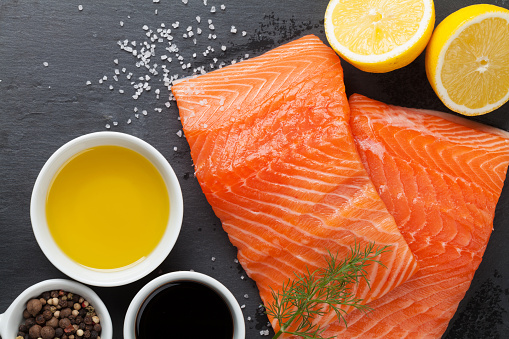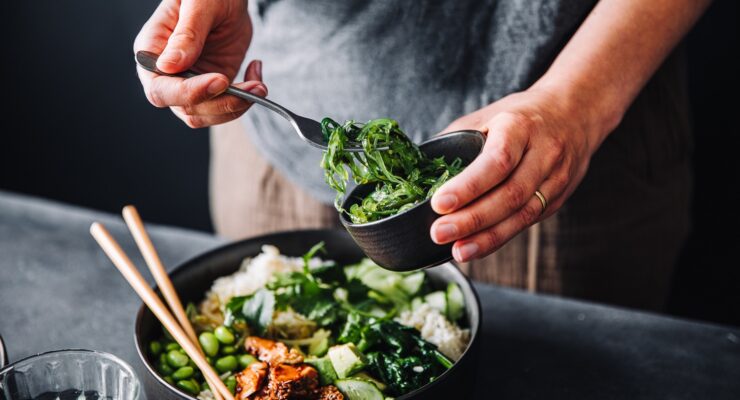8 Foods That Fight Inflammation
Article posted in: Diet & Nutrition
Ever nick your finger with a paring knife in the kitchen? While you’re quickly running it under cold water to stop the hurt, your immune system rushes in like a squad of EMTs with white blood cells to repair the damage.
It may not look like any repair you’ve ever seen. The area around the cut may swell, feel warm and look red and inflamed—that’s the inflammatory response at work, and it’s a good thing. It’s getting rid of damaged cells so your white blood cells can get to work. A 2010 Cleveland Clinic study was one of the first to show that inflammatory cells secrete insulin growth factor, which helps improves muscle injury repair. It likely works the same way on other injured tissue.
But inflammation is only a good thing when it’s of short duration. When that system doesn’t turn off, you have chronic inflammation, which studies have found may be responsible for many conditions as varied as asthma, rheumatoid arthritis, heart disease, cancer, Alzheimer’s, depression and type 2 diabetes.
It may even play a role in obesity, both as cause and effect. According to experts, the body seems to regard excess fat as an “injury,” mounting that same inflammatory response it does when you cut your finger but without shutting off. And one recent study in the journal Diabetes found that having high levels of inflammatory chemicals in your body predicts future weight gain.
Losing weight can help tamp down your immune system’s wildfire. So can eating certain foods and spices. Here are eight you should add to your diet:
1. Tart cherries
Studies have found that tart cherry extract—which you can consume as fruit, juice or a supplement—slashes a key marker of inflammation in the blood called C-reactive protein. Tart cherries may have the highest anti-inflammatory content of any food and have performed as well as (and better than) some drugs marketed to reduce inflammation and pain in a few research studies. Bonus: If you have trouble sleeping, tart cherries are a good source of melatonin, the sleep-inducing hormone.
2. Whole grains
In one study of 44 overweight or obese girls, those who ate a diet in which at least half of their grains were whole grains reduced C-reactive protein by more than 21 percent over two weeks. Researchers at the University of Nebraska have done experiments that suggest that eating whole grains like whole wheat, barley and brown rice even for short time changed the mix of bacteria in the gut, producing more of the kind associated with lower inflammation. There’s also evidence from a work involving more than 27,000 study subjects at the University of Minnesota that adding whole grains to the diet may lower the risk of diseases such as heart disease and diabetes linked with inflammation.
3. Green and black tea
Both have been shown to have anti-inflammatory properties, but a component of green tea—shorthand, EGCG—is so effective at tamping down the flames it can help ease arthritis progression and prevent cartilage damage by blocking an inflammatory chemical called interleukin-1, report researchers at Case Western Reserve University.
4. Turmeric
You may best know this Chinese and Indian spice as the flavor of curry or the color of mustard. What you may not know is that in studies, turmeric supplements have eased inflammation and pain in people with osteoarthritis and rheumatoid arthritis. Studies have found that turmeric and its main component, curcumin, block the same inflammatory chemicals as prescription arthritis medications, but without the side effects, according to the University of Maryland.
5. Blueberries
These little berries pack a powerful antioxidant and anti-inflammatory punch, which may account for the way they reduce inflammation-linked diseases, such as clogged arteries, type 2 diabetes, high blood pressure and heart disease. In one Harvard Medical School study, women who ate the most blueberries had a 33 percent lower risk of heart attack than those who ate the least.
6. Salmon
The key fire-extinguishing ingredient in salmon and other fatty fish is their omega-3 fatty acids. Research shows that dietary omega-3s reduce inflammation and the diseases linked to it, including heart disease, cancer, and arthritis. They appear to block the effects of several inflammatory compounds, such as interleukin 1 and the leukotriene LTB(4) produced by heavy consumption of omega-6 fatty acids found in foods such as wheat products, vegetable oils, breakfast cereals and eggs. Omega-6s aren’t bad for you. Your body need a balance of both fatty acids, but your diet should be weighted toward more omega-3s.
7. Nuts
Keep popping those almonds. Nuts are rich in omega-3 fatty acids, fiber, antioxidant vitamins, l-arginine and magnesium, all of which research has found can quell chronic inflammation. People who eat nuts, some studies have found, have significantly lower levels of inflammatory markers in their blood.
Along with anti-inflammatory vitamins, leafy greens contain plant chemicals that also help put out the fire by extinguishing inflammatory chemicals called cytokines. Include broccoli, Brussels sprouts and cauliflower in this fire brigade.











